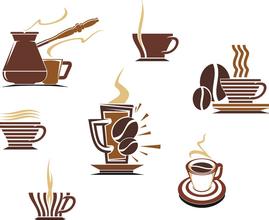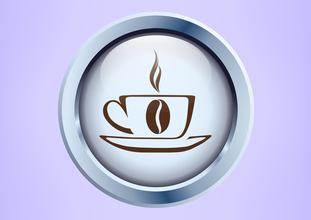Coffee beans have astringent taste after roasting-introduction to the importance of bean cultivation
Is the freshly baked coffee the best? Can we make a good cup of coffee from freshly roasted coffee beans? Our opinion is that it is best to wait more than 6 hours for coffee extracted without pressure apparatus (single coffee of origin) (cup test requires 8-12 hours), while for Espresso coffee it takes more than 5 days. The exhaust effect of coffee beans does not begin until 3 hours after baking. Coffee beans do not release any carbon dioxide, and the taste after cooking is very unstable. If you have ever washed hot water into freshly baked and ground coffee powder, or use it to make a cup of Espresso, you will find that it has a very sharp taste, bitterness of over-extraction and obvious acidity. It will be difficult to associate it with the smooth and sweet taste. Remember, in any case, time is absolutely necessary for coffee to release carbon dioxide and stabilize its taste. The exhaust process of coffee beans is much longer than that of coffee powder after grinding, and the exhaust phenomenon of coffee beans will also shorten the life of coffee beans. In the early exhaust process, the air will replace the escaped carbon dioxide at about 1:1. The air contains about 21% oxygen, so the absorption of the air will quickly oxidize the coffee, the coffee will continue to exhaust, the internal pressure of the coffee beans will decrease, and the exhaust speed will begin to slow down. Over time, 12-ounce bags of baked beans release more than half a cubic foot of gasified carbon. Each coffee bean contains about 200000 individual cells, each of which operates like a tiny pressure vessel, operating like a small reactor. In the early stage of roasting, the moisture in the raw beans dissipates quickly, and the living water in the coffee begins to evaporate. With the increase of the temperature of coffee beans, the evaporation of water will put pressure on the cell wall. in this process, the element of water plays a leading role, and there is a series of very interesting reactions with the oil in the coffee. As the pressure increases, the cell wall begins to expand. The evaporation of water causes the cell wall to slowly harden. As the roasting process continues to go down, the pressure inside the beans increases, and the coffee oil is brought into the tiny pores in the cell wall, creating a sealing effect that retains carbon dioxide, other aromatic substances and coffee aroma in the cell wall.
Coffee contains a variety of ingredients, extraction is not to extract all of these ingredients, there is usually such a rule: if the amount of coffee powder is fixed, the amount of extraction of soluble ingredients is determined by grinding degree and time.
The finer the grinding degree of coffee powder is, the longer the extraction time is, the more ingredients will be obtained. According to the experiment, if all the ingredients that can be extracted from the quantitative coffee powder are extracted, up to 30% of the ingredients can be extracted. But not all of these ingredients are what we need. Coffee has ingredients that we need as well as ingredients we don't need, and the longer it takes to extract, the easier it is to extract bad ingredients that we don't need.
One of the most important ingredients we do not need is "tannin", the correct name should be called tannic acid. Raw coffee beans contain 8%-9% and roasted raw beans contain 4%-5%. Like caffeine, it has the property of being decomposed at certain baking degrees. When baked to a depth around French or Italian baking, 90% of the tannins are broken down.
Most people will think that deep-roasted coffee is strong and light-roasted coffee is weak, this idea is completely wrong, mistakenly thinking that light-roasted coffee is less irritating, and if you quote it before going to bed, it will make you open your eyes until dawn! The deeper the baking degree, the less caffeine and tannin. The irritation will also diminish. Don't be fooled by the appearance color of the coffee.
The tannins we don't want to extract are responsible for the astringency of coffee. Tannins are angels and demons, a small amount of tannins can play the sweet and mellow thickness of coffee, a small amount of coffee tannic acid also has a wide range of antibacterial effects! But the finer the grinding, the longer the extraction time, and the demons play a role, filling the coffee.

In order to prevent excessive extraction of tannins, the key is that coffee beans are ground in roughness, with less powder and slowly extracted at a lower water temperature (below 90 °).
Preventing excessive extraction of tannins is also a great rule for making delicious coffee! Often used to adjust the taste of coffee, so that coffee becomes smooth and delicate, less irritating!

Important Notice :
前街咖啡 FrontStreet Coffee has moved to new addredd:
FrontStreet Coffee Address: 315,Donghua East Road,GuangZhou
Tel:020 38364473
- Prev

Classified varieties and characteristics of Coffee introduction to the country of Coffee production
Want to eat coffee snacks, usually have Tira Misu, cookies, mousse and other dessert, drink coffee, eat a snack, is a kind of enjoyment. There are many kinds: charcoal roasted coffee: using a unique roasting method, mellow taste, bitter, mixed coffee in the following proportion: Colombia 2, Brazil 2, Manning 1.5, Java 4.5. Dry charcoal coffee: put the coffee beans in the tree
- Next

How long can roasted coffee beans of different varieties of coffee be stored? Preservation method
Different roasters, different beans, different seasons, different extraction methods are too complicated. I can't say a word at all! I would like to recommend a bean cultivation time suitable for most situations for your reference. In general, the best drinking time is 2-5 days after baking, while Italian beans usually take 15 to 20 days to drink. The second place after single bean baking in summer
Related
- Beginners will see the "Coffee pull flower" guide!
- What is the difference between ice blog purified milk and ordinary milk coffee?
- Why is the Philippines the largest producer of crops in Liberia?
- For coffee extraction, should the fine powder be retained?
- How does extracted espresso fill pressed powder? How much strength does it take to press the powder?
- How to make jasmine cold extract coffee? Is the jasmine + latte good?
- Will this little toy really make the coffee taste better? How does Lily Drip affect coffee extraction?
- Will the action of slapping the filter cup also affect coffee extraction?
- What's the difference between powder-to-water ratio and powder-to-liquid ratio?
- What is the Ethiopian local species? What does it have to do with Heirloom native species?

